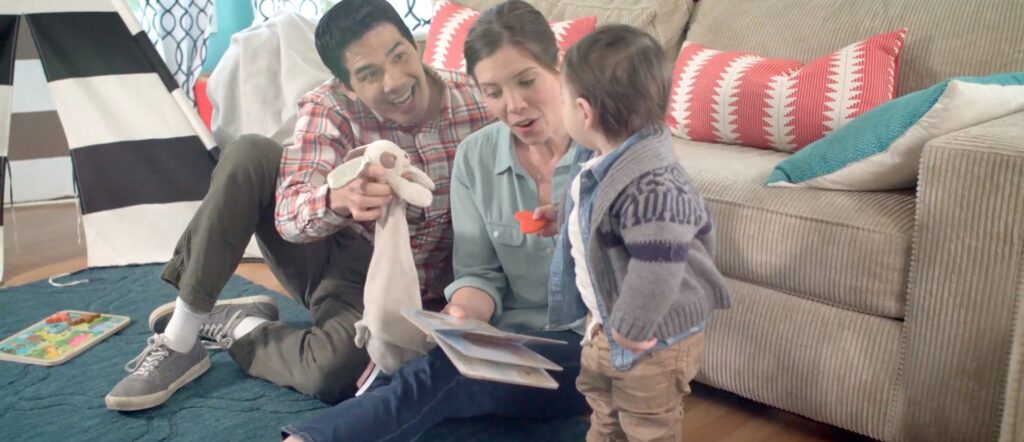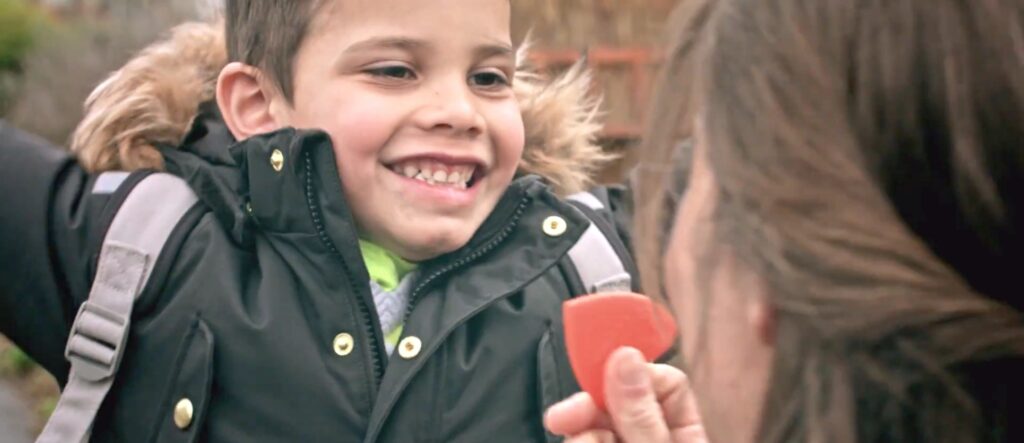
Using self-talk to teach your child how to label feelings helps her connect her feelings with words. This helps her better understand and express her emotions and experiences. You can play a matching game with your child by showing her pictures of various feelings and matching the facial expressions with the feeling states (happy, sad, […]

Self-talk can be helpful for a wide variety of situations. For instance: • Planning: If you say, “You can have a cupcake after dinner,” your child will tell herself, “First dinner, then a cupcake.” • Self-Guidance: If you’re calm about your own mistakes and say, “I can try again,” your child will learn it’s okay […]

You’re probably very familiar with your own inner voice, but how does your child’s inner voice develop? It comes from you. Your words and tone become the inner voice your child hears when she talks to herself. You can help nurture a positive inner voice that promotes self-regulation and confidence in your child by modeling […]

Promoting Calm and Confidence “It’s like everyone tells a story about themselves inside their own head. Always. All the time. That story makes you what you are. We build ourselves out of that story.” – PATRICK ROTHFUSS

Porges, S. W. (2011). The polyvagal theory: Neurophysiological foundations of emotions, attachment, communication, and self- regulation. New York, NY: W. W. Nortion and Company. Rothbart, M. K. & Rueda, M. R. (2005). The developmentof effortful control. In U. Mayr, E. Awh, & S. Keele (Eds.), Developing individuality in the human brain: A tribute to Michael […]

Emotion Regulation • Sixteen-month-old Jack is at the doctor’s office for his checkup and is afraid of getting a shot. His mother, Estee, wants to help him lower his anxiety (Dial Down). • Estee acknowledges and validates Jack’s fear by saying in a comforting voice, but with a long frown on her face, “I know […]

Developing your child’s ability to self-regulate requires you to observe her closely and respond appropriately. From birth, you help your child regulate her fluctuating arousal states. We call this simple self-regulation model Dial Up and Dial Down. • Dial Down: When you rock your fussy child in a quiet room before bed, you are helping […]

Your interactions with your child play an important role in her future capacity to self-regulate. Whenever you calm your own anxiety, control your anger, manage powerful emotions, or delay gratification, you are regulating your internal states. Modeling how you regulate your own emotions or behavior in various situations helps your child learn to do the […]

You have probably noticed that some children are sensitive to the slightest noise, while others require a very loud noise to respond. Some children can do errands with you all day and not get cranky, while others get fussy and need some quiet time after a short outing. If you want your child to thrive […]

The Dial Up and Dial Down Model “The better I self-regulate as a parent, the better my child will self-regulate. The better my child self-regulates, the less stress I feel.” – DR. STUART SHANKER



